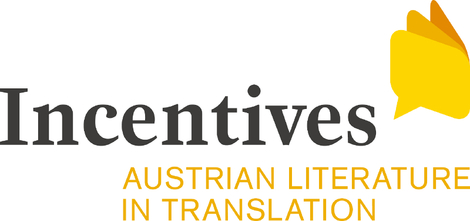- Das Haus
- Newsletter
- Service
- Publikationen
- Veranstaltungen
- NEU Livestream
- Livestream-Archiv
- Ausstellungen
- Buchmagazin & AutorInnen
- AutorInnen
- AUFTRITTE
- Rezensionen Buch
- Rezensionen 2019
- Rezensionen 2018
- Rezensionen 2017
- Rezensionen 2016
- Rezensionen 2015
- Rezensionen 2014
- Rezensionen 2013
- Pressespiegel 2000-2010
- AutorInnen A
- AutorInnen B
- AutorInnen C
- AutorInnen D
- Autorinnen E
- AutorInnen F
- AutorInnen G
- AutorInnen H
- AutorInnen I
- AutorInnen J
- AutorInnen K
- AutorInnen L
- AutorInnen M
- AutorInnen N
- AutorInnen O
- AutorInnen P
- AutorInnen Q
- AutorInnen R
- AutorInnen S
- AutorInnen T
- AutorInnen U
- AutorInnen V
- AutorInnen W
- AutorInnen Z
- Rezensionen Sachbuch
- Verlage
- Dank an Verlage
- Impressum
- Incentives
- Bibliothek & Sammlungen
- Katalogsuche
- Partnerinstitutionen





FÖRDERGEBER
PARTNER/INNEN

 Ljuba Arnautovic: Junischnee.June Snow. Novel. After her well-received debut, Im Verborgenen (Hidden, 2018), Ljuba Arnautovic, the Viennese author born in Kursk, has published her second novel based on a family history that could not be more dramatic. With this book, she has written a probing portrait of her father and at the same time a captivating history of the "Schutzbund children" [the children of Austrian anti-fascists sent to the Soviet Union, -trans.], the USSR in the ‘40s and ‘50s, and post-war Vienna. Excerpt of the review by Ursula Ebel, March 8, 2021, |
| Veranstaltungen |
|
Sehr geehrte Veranstaltungsbesucher
/innen! Wir wünschen Ihnen einen schönen und erholsamen Sommer und freuen uns, wenn wir Sie im September... |
| Ausstellung |
| Tipp |
|
OUT NOW: flugschrift Nr. 35 von Bettina Landl
Die aktuelle flugschrift Nr. 35 konstruiert : beschreibt : reflektiert : entdeckt den Raum [der... |
|
INCENTIVES - AUSTRIAN LITERATURE IN TRANSLATION
Neue Buchtipps zu Ljuba Arnautovic, Eva Schörkhuber und Daniel Wisser auf Deutsch, Englisch,... |
